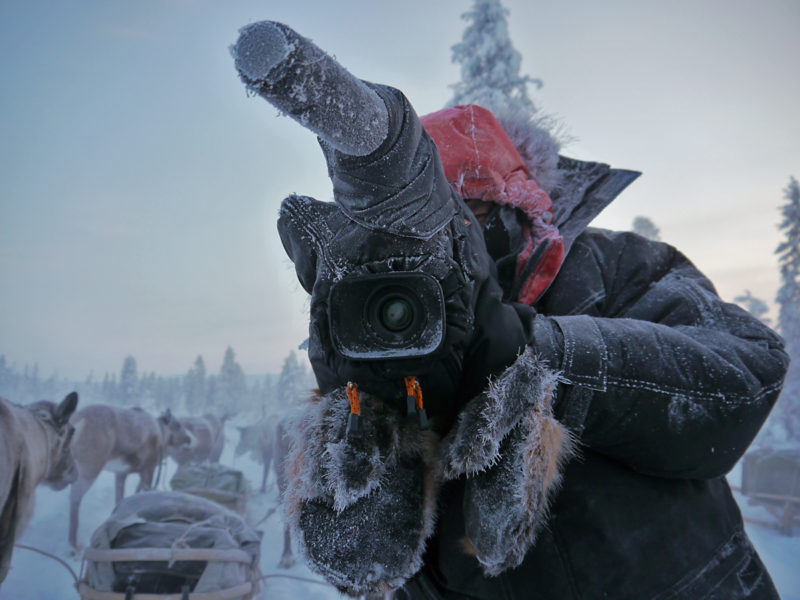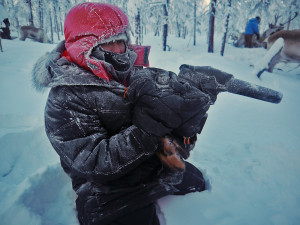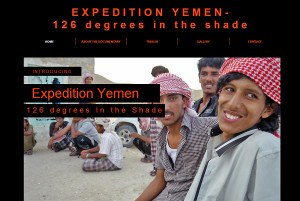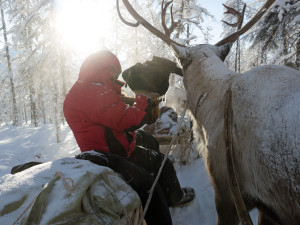Lately I have received a fair amount of emails asking me how to do a documentary out of a journey. One wrote:
“It seems like you don´t have a big crew with you on your travels or big cameras, but I thought that was the only way to get a documentary produced from a journey?”
I can understand that most people believe you need a production company, a big BBC crew and loads of kit to produce a documentary. In the past, yes, this was more true then not. Today, with the quality the smallest of cameras have, reality has changed. There´s no doubt there´s still, in some cases, a need for bigger productions and kit. And, yes, having a production company behind you definitely makes the chance of selling your documentary bigger, BUT it doesn´t mean your film will be better if produced together with a company who will do the main filming for you. Like for example the standard National Geographic or Discovery Channel production. They come in, give you a small camera to do on-camera filming and then do the rest themselves, plus do the edit without you having much say in it. That is why most productions of adventure, travel and exploration looks the same today. In my book that is.
So, I will share 9 pieces of advice how to do a documentary about your journey.
1. Recording Kit. The days of the oversized cameras and dolly grip handlers are over, I hope, and basically you need a HD camera (for example, I use the Canon XA10, and/or Canon´s XF 105, a bigger better version of the XA10, but sometimes too big and scary when dealing with people), a back up camera (which can be, for example as for me, Panasonics Lumix DMC-GH2, which I also use for stills), a good microphone, like Sennheisers K6, possibly a GoPro for fun angles, but also good for fast handling. You need a bunch of SD-cards, at least 3-4 spare batteries, biggest size, a bunch of Expedition Lithium AAs for the microphone. I carry this on my all the time in a backpack. (*You need spare cables, electrical tape, a couple of headphones, some tools, duck tape, maybe some light, but I use my torch for that and a Pelican case for plane travel. This is my full Yemen kit including all gear, but once travelling, I needed little of it, see http://www.mikaelstrandberg.com/2012/05/06/equipment-list-and-final-thoughts/)
2. A sounding board. No matter what, you need people to talk to about your ideas how to film your documentary, once you are there and once you come back to get a perspective of your filming.. Like an editor, producer or someone who have at least a bit of an idea how to set up a story to become a documentary. It is otherwise easy to head down the wrong alley, ending up with a mishmash of nothing.
3. A synopsis. Before leaving, try to write a synopsis which summarizes your film and what you want it to become. Afterwards, and if you become successful, e.g you will get an audience for your film, you will need to write a lot of different varieties of a synopsis, so you might as well start immediately. This can also be used for press releases in a shorter form. Or your webpage.
4. Don´t narrate things which you can´t show with images. In my book, the worst of documentaries is when you end up watching a documentary when the main characters (s) in the documentary are interviewed after the actual journey with a blackened background. I think this in most cases is terrible TV and film! I know it is very hard to film when it is really difficult, but try. Or leave that part out. Or reenact it fully, like Touching The Void.
5. More focus on people you meet, less on yourself. I personally find that most documentaries today about exploration or adventure or journeys as such involving people who want to accomplish a set goal, is far too self centered and the viewer learns little about the cultures passed and people met. I disagree with especially British and American media which focuses far too much on an American or a Brit on a mission. Time for a change.
6. Avoid promises to people you film or deal with that you can´t keep. It is far too easy to do this mistake. I have done it. For example, I will send you photos or a DVD and then loose their details along the way. Or simply forget. I have become better. Life is a learning process. As a matter of fact, Survival International have written an excellent set of Guidelines to be Followed By Filmmakers. Read this before your journey!
7. Show your camera all the time. I try to have the camera on me all the time, so people get used to me having one, and if they get bothered, I put it away. But I don´t film until I have their permission. (In most cases, sometimes I do, because it has to be done. Nope, I can´t draw the ethical line. It is something you need to feel within, what is right or wrong.)
8. Find an editor when you come home. You need an “outside” editor not only as a sounding board, but because they have the skills how to make a professional film. I have had the honor to work with the best and it makes such a difference. They make your film as much as you do! Together with you!
9. Professional production companies. If you decide to work with an established production company, who promises you that it might end up on Discovery Channel or National Geographic, give it a good thought at least eleven times. I have watched a lot of stuff on these two channels, an honestly I can hardly mention one I remember. Do you? And why is this? It seems like they´re working with the same frame of mind. Same story line, some development, often an interview after the trip with black background…terrible, no originally at all, just standard TV. And why would you want to turn your journey into standard TV? If you decided to say yes, don´t sign until you have an important say in the editing. Don´t give them full editorial control, BECAUSE whatever they believe, it won´t be better without your opinions. And, what if they make your documentary into something it wasn´t? If there´s any re-enactment, they´ve failed.
10. Just get that kit, second hand is fine, shouldn´t take too much of your budget and go!





Merci!